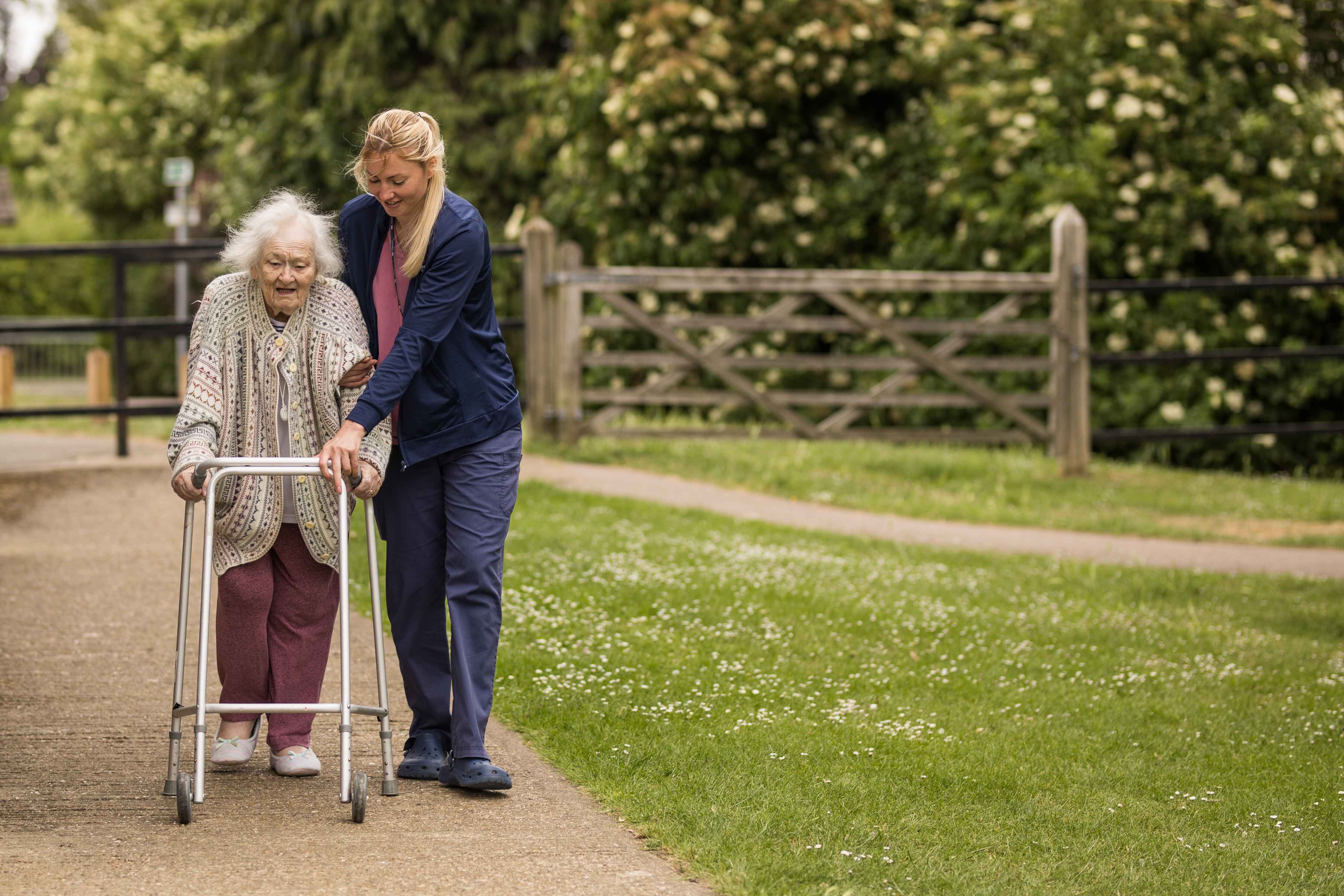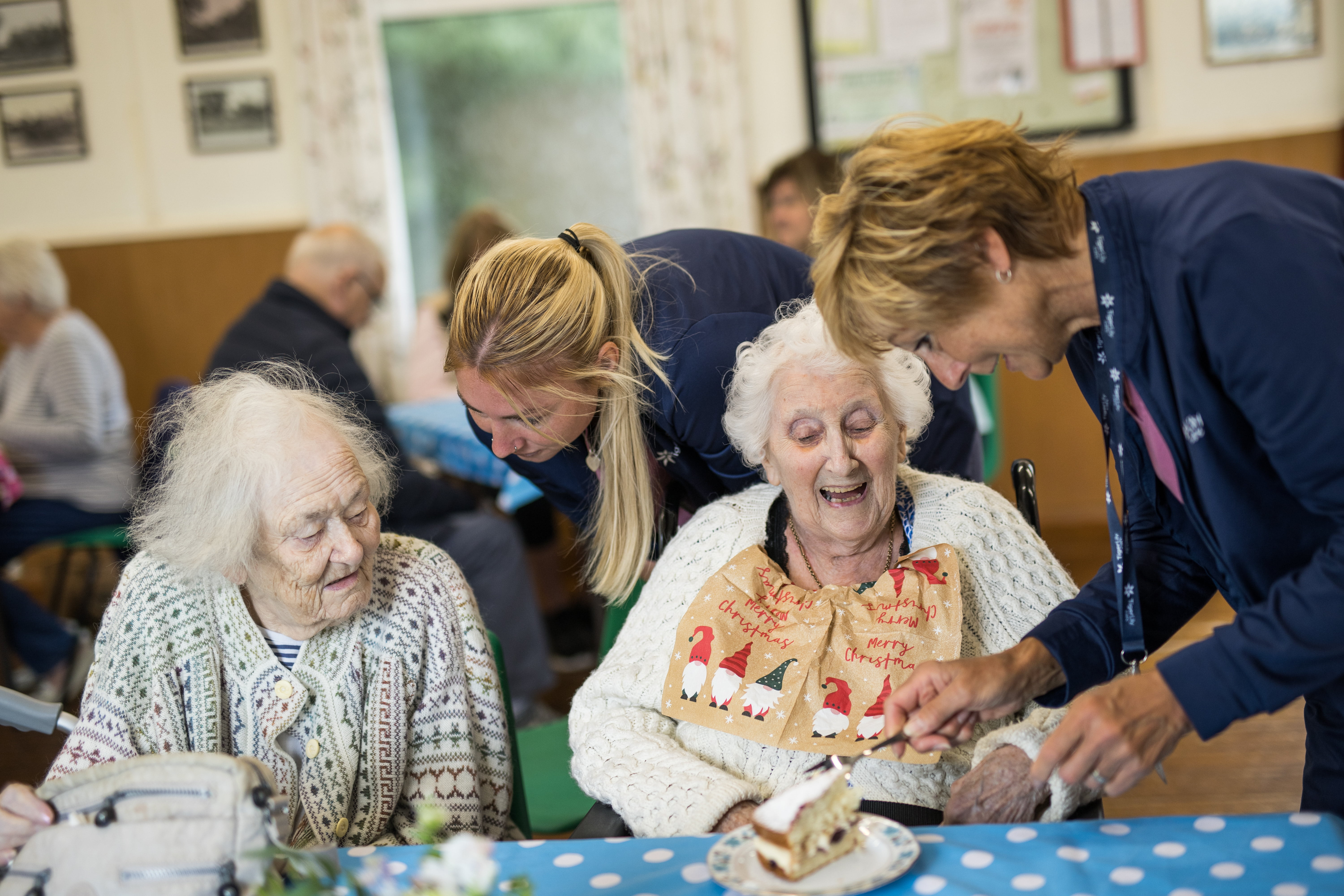As we age, we may find ourselves in a position where we require increasing levels of support with our day-to-day activities. When it comes to choosing the right kind of care support for yourself or a loved one, the decision is never easy. With a wide range of options available, having more information about the unique benefits and challenges of each can make the choice feel slightly less overwhelming.
This blog explores ten key differences between care at home and moving to a care home (otherwise known as residential care). We will compare and contrast both options, allowing you to make the best decision for you or your loved one. This article will discuss the question from the perspective of the individual and their family, as both parties will have questions and concerns that need to be considered.
The Growing Need for Care Options
With an ageing population, more and more families in the UK are navigating the challenging question of long-term care. Age UK estimates that over a million older people in the UK receive some form of care, with demand expected to continue increasing in the coming years. Ultimately, the decision between home care and residential care involves complex considerations that cover practical, emotional, personal, and financial factors.
There is no one-size-fits-all approach to care. For example, while one person may value the increased independence that living at home brings, another may place greater value on the round-the-clock support and companionship offered in a care home. These choices are highly individual, often requiring input from family, healthcare professionals, and, most importantly, the individual receiving care themselves.
1. Living Environment
One of the most obvious, and most important, considerations is understanding the kind of environment the person requiring care wants to live in.
Home care enables individuals to remain in their own familiar surroundings, maintaining their routines and personal belongings close by. Familiarity can be especially important for those with dementia or sensory impairments, as it supports orientation and prevents the distress brought about by unfamiliarity.
Care homes provide a communal living setting, typically with private rooms and shared spaces like lounges and dining rooms. While they are designed for comfort, they may not offer the same sense of personal space or control. The upheaval associated with moving home is another essential factor to consider.
2. Level of Supervision and Support
Depending on the level of impact from chronic health conditions, the intensity of supervision and support differs from person to person.
Home care services can be tailored to individual needs, ranging from occasional visits to live-in care. However, unless round-the-clock care is arranged, supervision may be limited, and response times to urgent situations may be slower. In general, care activities need to be planned around set visit times.
Care homes provide 24/7 support from trained staff, offering peace of mind for individuals with more complex or unpredictable needs. Medical professionals may be on-site, and emergency help is always available.
3. Personal Independence
Inevitably, care involves a level of involvement in activities once undertaken independently. The level to which personal independence is exchanged for professional support should also be considered.
Home care promotes independence by allowing people to manage their time and activities with support as needed. Individuals can generally choose when to eat, sleep, and engage in daily tasks. However, even these activities often need planning around the availability and schedule of home carer visits.
Care homes may reduce independence due to scheduled routines and shared living rules, though they offer consistency and structure that some people find reassuring. Care homes place a significant amount of focus on maintaining independence wherever possible, varying the level of input to meet each individual’s needs.
4. Social Interaction
Loneliness can be a significant problem faced by the elderly. The type of care a person chooses can influence the amount of social engagement they have.
Home care may result in isolation if family or carers are the only regular contacts. However, companionship care or community groups can reduce loneliness, and visits from carers or volunteers can bring valued social engagement. Home care can provide significant social benefits to individuals previously living completely independently.
Care homes offer built-in opportunities for socialisation through group meals, activities, and being around peers. For some, the community setting can greatly enhance mood and reduce feelings of loneliness. Individuals who live in a care home still have the opportunity for personal time in the privacy of their bedroom.
5. Flexibility of Care
People handle routine in different ways. Some people can easily adapt to the consistent structure provided for them, while others require greater flexibility and personal involvement.
Home care is highly flexible, adapting to your specific routines, lifestyle, and preferences. Care plans can change as needs evolve. You can request support at specific times and scale care up or down as needed.
Care homes offer consistency but less flexibility. Daily routines, meal times, and activities are usually fixed, which can feel restrictive to those who value autonomy. However, many care homes are starting to offer greater flexibility for their clients, allowing routines to be built around the needs of the individual.
6. Safety and Risk Management
Safety is one of the most important considerations, especially for concerned family members, when selecting the right type of care.
Home care may require appropriate home modifications (grab bars, stair lifts, etc.) to be safe. Risks may remain if supervision is limited, especially for individuals prone to falls or memory loss. Solutions such as wearable emergency devices can provide peace of mind during periods between care visits.
Care homes are purpose-built for safety, with staff always present to respond to emergencies, monitor health, and prevent accidents. They are generally more suitable for individuals with higher risk profiles. For those requiring intensive medical support, nursing or dementia specialist homes are a great option.
7. Family Involvement
Maintaining a close relationship with family members is one of the most important concerns for many older people as they begin to explore care options.
Home care often allows for more frequent and informal involvement from family members. Loved ones can help with care, visits, or meals without restriction, and stay closely involved in the individual’s day-to-day life.
Care homes may have visiting hours, which can potentially limit the opportunity for family visits. However, care provided by staff can relieve families of personal care responsibilities, allowing more time to be spent together in a social capacity and ultimately reducing caregiver burnout.
8. Cost and Funding
Finances are an important consideration when it comes to choosing the type of care you or your loved one receives.
Home care costs vary depending on the frequency and type of care provided. It can be more economical for low-to-moderate needs, but it can be expensive for 24/7 support. Costs are often charged by the hour and may vary depending on the location and provider.
Care homes have higher overall costs due to accommodation, food, and continuous care, although these expenses may be more predictable from month to month. However, for those with substantial care needs, residential care may offer better value for money.
Local authorities may offer financial support following a means test, and certain benefits or allowances may also apply. Age UK have a handy guide covering what you need to know about funding care.
9. Medical and Specialist Care
As we age, our health needs can change. The type of health and medical care required on a daily basis can influence the kind of care most suited to your needs.
Home care carers can assist with basic health tasks, and nurses may visit for more complex needs. However, coordinating multiple services (e.g., physio, medication management) can require extra planning and support.
Care homes, especially nursing homes, often have on-site medical staff and more suitable facilities for managing complex or chronic conditions. Regular monitoring may help identify and respond to health issues more quickly.
10. Transition and Emotional Impact
The emotional burden of moving home should not be underestimated. Every individual will manage this change differently, and family members should be sensitive to these concerns.
Home care avoids the emotional upheaval of moving and can be easier for individuals with dementia or those resistant to change. Staying at home can help maintain a sense of control and identity.
Care homes may initially cause distress due to relocation, but can provide long-term security, especially when care needs become advanced. Over time, many residents adjust well and form meaningful relationships with staff and peers.
Conclusion
There is no one-size-fits-all solution when it comes to choosing between home care and a care home. Both offer unique benefits and specific drawbacks, with the right choice depending on the individual’s care needs, personal preferences, family circumstances, and financial situation.
Take the time to consider the ten differences outlined above. Involve your loved one in discussions where possible, and don’t hesitate to seek professional advice to support your decision.
For more information about the high-quality home care services that we can provide for you or your loved one, contact us today.








